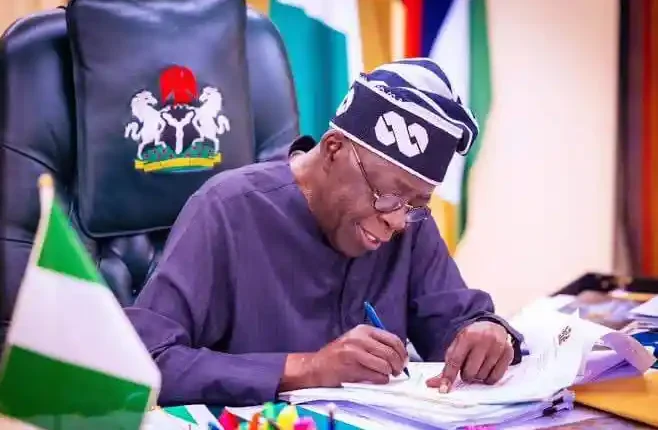Tinubu Names Six Major Public Institutions After Himself in Two Years (Full List Revealed)
- Advertisement -
All Progressives Congress (APC) might eventually be renamed the Bola Tinubu Progressives Congress (BTPC) if the current trend continues.
Growing Trend of Renaming Public Facilities Sparks National Reactions.
President Bola Ahmed Tinubu has, within two years of assuming office, either named or renamed at least six prominent public edifices and institutions across Nigeria after himself, a development that has triggered nationwide conversations on legacy, leadership, and governance priorities.
- Advertisement -
TJ News Nigeria gathered that the naming spree, largely concentrated in the Federal Capital Territory (FCT), Abuja, highlights what many observers describe as an ongoing self-immortalisation agenda by the Nigerian leader.
List of Facilities Named After Tinubu
Below is a summary of the public institutions and infrastructure already bearing President Tinubu’s name:
- Advertisement -
-
Bola Ahmed Tinubu Barracks, Abuja
-
Bola Ahmed Tinubu Technology Innovation Complex (BATTIC), Abuja
-
Bola Tinubu Polytechnic, Abuja
-
Bola Ahmed Tinubu Way, Abuja
-
Senator Bola Ahmed Tinubu Building (formerly National Assembly Library)
-
Bola Tinubu International Conference Centre (formerly International Conference Centre, ICC), Abuja
These renamings have all occurred between 2023 and 2025, positioning the president among Nigerian leaders with the highest number of self-named public edifices within the early years of administration.
Public Reactions and Speculations
- Advertisement -
The development has spurred speculations among political commentators and civil society groups regarding the possibility of more institutions being named after the president if his tenure extends to a second term.
Some social commentators have even humorously suggested that the ruling All Progressives Congress (APC) might eventually be renamed the Bola Tinubu Progressives Congress (BTPC) if the current trend continues.
While there has been no official confirmation of such plans from the presidency or party leadership, the suggestion underscores growing public perception around Tinubu’s approach to legacy-building.
Concerns Over Legacy and Historical Relevance
Critics argue that historical recognition and enduring legacies are ultimately determined by tangible contributions to national development, rather than by honorary namings. According to them, if an administration’s record of governance fails to meet public expectations, future governments can easily reverse such name changes, potentially erasing the symbolic footprints being established today.
- Advertisement -
However, supporters of President Tinubu maintain that the renaming of public infrastructure is a legitimate tradition globally used to honour contributions to nation-building, especially for leaders who have played key roles in national democratic struggles.
The Debate on Self-Immortalisation in Nigerian Politics
The practice of naming public institutions after sitting or former leaders is not new in Nigeria’s political landscape. Several past military and civilian administrations have followed similar patterns, although the rapid succession of self-referencing namings under Tinubu’s government has intensified public discourse on the appropriateness of such actions during a leader’s tenure.
It remains to be seen how history will ultimately judge these moves in relation to President Tinubu’s broader legacy in governance, economic reforms, and national development.
For now, Nigerians await the unfolding of more decisions that could either entrench or undo these symbolic gestures in the years to come.
Related News:
- Advertisement -


